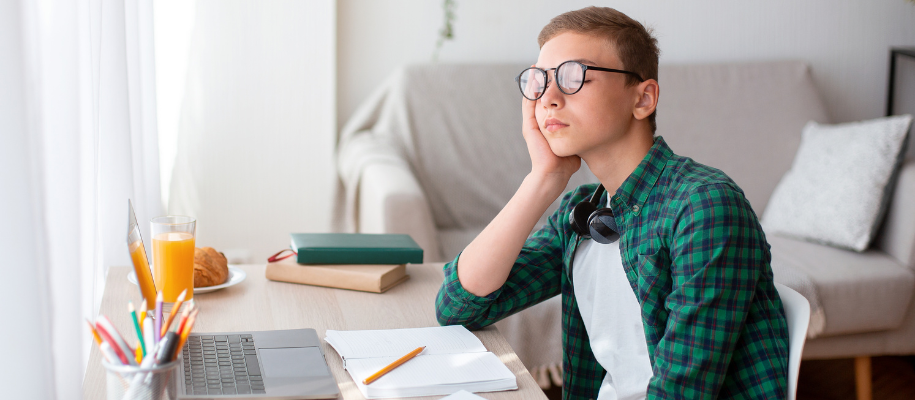Are you getting enough sleep? Spoiler alert: If you’re in high school, probably not. A scary number of high school students barely reach the recommended number of hours of sleep each night, and 60%–70% of teens suffer from some form of sleep deprivation. And sleep deprivation is a big problem. Sure, many students have heard—or said—the mantra, “Sleep is for the weak.” Besides, you can get good grades, be in nine different clubs, play on three sports teams, serve as class president, and get by with three hours of sleep a night all at once, right? As long as you have caffeine, right?! This is not exactly true. And by “not exactly,” I mean not in the slightest.
Sleep is just as essential to your body as breathing. Drinking enough caffeine to kill a small moose will not make it better. If sleep is for the weak, then the weak have better self-control, better focus, and a better chance of avoiding car crashes. Here’s a closer look at some of the effects of being sleep-deprived among teens and young adults.
Bye bye, focus
You know you can’t focus in class when you’re falling asleep in your chair, but if you’re constantly tired, you’re probably not focusing well the rest of the time too, even if you feel okay. “Sleep deprivation affects memory, cognition, and motivation, and the effects are compounded when it's long-term,” reports NPR’s Anya Kamenetz. It’s no surprise that not getting enough sleep also impacts your academic performance in high school—which is probably the whole reason you’re staying up late and working so hard in the first place.
If you’ve gone an extended amount of time without proper sleep, you may feel fidgety, be unable to focus on one task, or have a hard time listening to a lecture. Sound familiar? They’re also some of the most common symptoms of ADHD. Psychiatrist Allison Baker says that “it’s an easy misdiagnosis to make.”
Related: Helpful Tips for Better Attention and Focus in the Classroom
So long, self-control
Many things we attribute to “teen angst” may actually be “sleep-deprived angst.” At one point or another, every high schooler knows the feeling of being bone-weary and willing to give an arm to just go home and sleep. Obviously, when you’re that tired, moodiness is common and people can snap at the slightest agitation. What you might not realize, however, is that lack of sleep can keep you in that agitated state all the time. When people have less than the recommended amount of sleep, they often become more angsty than they would naturally be. Teens who don’t get enough sleep are also more likely to self-medicate with things like alcohol or drugs to feel better.
Hello, accidents
Everyone knows how dangerous driving while intoxicated is, but many people don’t know that driving while tired can be just as bad. A study from the University of New South Wales in Australia and the University of Otago in New Zealand found that after being awake for 18 hours straight, drivers were just as impaired as if their blood alcohol level was .05—over half the legal limit of .08. That means driving drowsy is just as dangerous as driving tipsy. This doesn’t even account for the fact that those same sleep-deprived teen drivers aren’t as experienced behind the wheel either, which could make for a double-whammy of disaster.
What to do about sleep deprivation
In short: Go to sleep! And try to get at least seven hours of quality sleep a night. You really do need it. You might be thinking, “Umm, sure. But my French paper isn’t going to write itself. Or my college applications. Or my high school yearbook write-up. Or…” But it’s important to make sleep a priority. Take a step back and see where you can rearrange your schedule and commitments. Maybe say no to some things. Ask for help from friends and family. And remember: You’ll probably be a better student—and get more done—when you’ve gotten enough sleep.
If you have trouble getting to sleep or staying asleep, there are a few things you can try. Work on eliminating stress, come up with a calming ritual before bedtime, and make your bedroom as quiet and dark as possible. If these tips don’t help and you continue to have trouble going to or staying asleep—or you think you have serious insomnia—check with the school nurse or your doctor to make sure there isn’t an underlying medical issue. In the meantime, check out these Top Sleep Hygiene Advice for Tired Students. But seriously, if you’re reading this at 1:00 am, log off and go to sleep.
Related: How to Optimize Your Sleep While Living in a Dorm
Good sleep is essential for students to maintain their health, academic performance, and overall well-being. Despite the pressures and busy schedules high schoolers face, finding ways to ensure you get adequate rest is crucial. By making sleep a priority and implementing strategies to improve your sleep quality, you can achieve a healthier balance and perform better in all aspects of life.
After you get a good night's rest, find more advice to improve your life as a busy student with all the content under our "health and wellness" tag.







